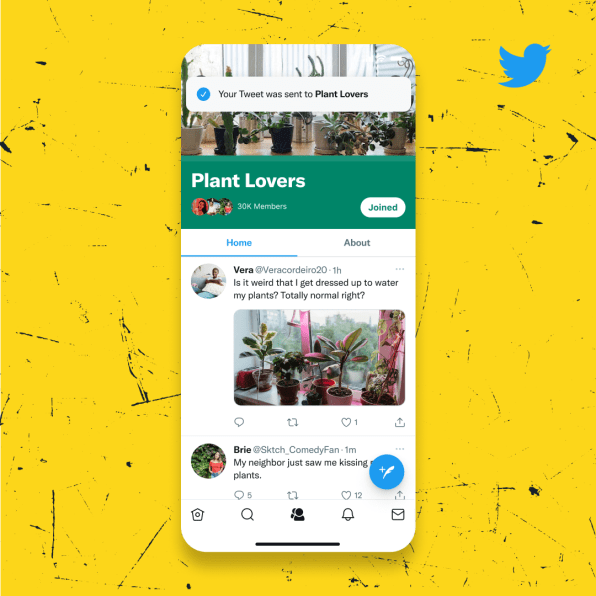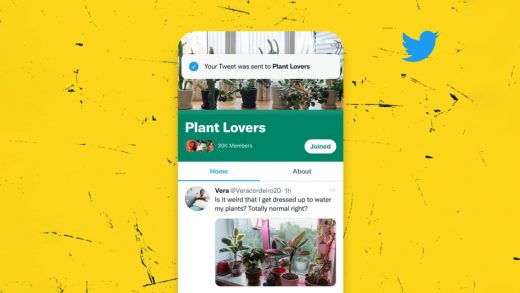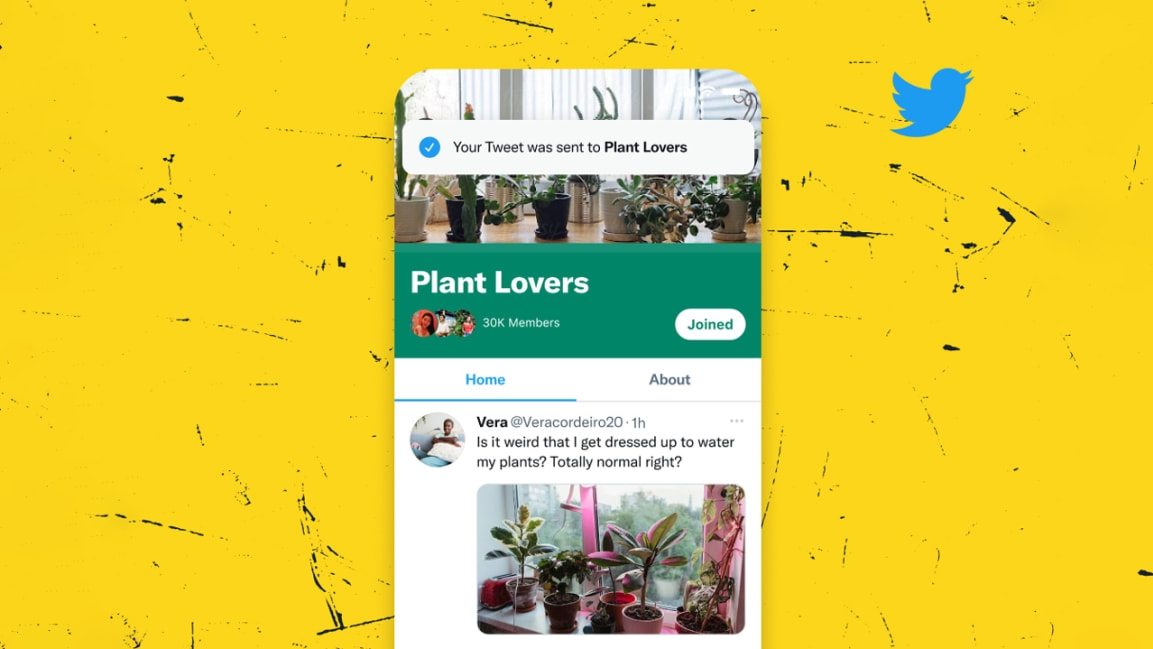Twitter launches topic-specific ‘Communities’ for discussions of dogs, astrology, and more
Twitter is launching a new “Communities” feature to host moderated discussions around specific topics. The company aims to let people have more intimate discussions of their hobbies and interests on the platform, even when others in their feed are talking about news, politics, or other topics that can dominate the conversation.
Members of Twitter Communities will be able to post tweets specifically to that Community, and only other members are able to reply. Moderators can control who’s in the group, sending invites via direct message and removing members who don’t fit in, and generally set the rules and topics for the Community.
Unlike private and secret groups on Facebook, WhatsApp groups, invite-only subreddits, or private chat channels on platforms like Slack, Communities will be publicly visible. That means non-members will be able to follow along with discussions, though they can’t directly chime in, and they can also quote-tweet Community posts to their own followers. They’ll also be able to report inappropriate content, as with non-Community tweets.
That makes it less likely that people will be able to use Communities to get around Twitter rules the way users have turned to private channels on other platforms to coordinate harassment campaigns or circulate disinformation about subjects like the coronavirus pandemic.
Still, depending on the types of groups people set up and how they choose their members, it’s possible they’ll serve as echo chambers, since dissenting non-Community members won’t be able to directly reply and challenge their points of view. And it’s almost inevitable that members of Communities will try to push the envelope in terms of what’s allowed under Twitter rules, so it will ultimately depend on the company to react to any abuses that pop up.
For its part, Twitter says it will be “developing ways to proactively identify potentially problematic Communities, new reporting flows, and bespoke enforcement actions” to handle such issues. The company has even consulted outside experts to plan for possible abuses.

“We’ll continue to do research, scenario plan, and work with outside experts including our Trust and Safety Council to keep people safe with Communities,” according to the company’s blog post on the new feature.
Twitter has long been used for topic-specific conversations, with hashtags especially letting people search for information about a particular subject, whether it’s a professional conference, new movie, trending meme, or a natural disaster. But since anyone can post to a hashtag, it’s easy for them to become inundated with off-topic or even abusive posts, argumentative trolling, or commercial spam. Moderated Communities could presumably avoid some of these issues, although they may still see some of the issues with burnout, bias, and abuse of power that have plagued moderation on other platforms.
For years, Twitter has been trying to encourage what it calls “healthier conversations” on its platform, amid challenges with harassment and misinformation. Recently, the company has launched a feature letting users require followers to pay to access special content, and it just launched a tool to control replies to tweets. The Communities feature appears to be another part of this larger push.
At first, Twitter is setting up some initial Communities around perennial conversation topics that would be safe to discuss around the office water cooler or a kids’ soccer game. That includes dogs, weather, sneakers, skin care, and astrology, according to a company blog post. Indeed, the company seems to suggest, Communities might give users a haven to discuss fun topics even when they might otherwise feel self-conscious about tweeting about them while serious things are happening in the world or their communities.
People are able to reach out the company about starting new Communities of their own. Moderators will also initially need approval from Twitter, though the blog post suggests that at some point it may be easier to create a Community and for groups to choose their own moderators.
Communities are also starting as invite-only, but the company indicates there will be more ways to find and join the groups in the future.
(45)



